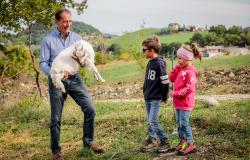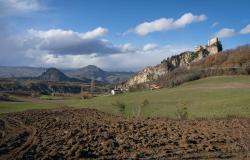Agriculture Minister Luca Zaia said on Thursday he was preparing to ban new types of pesticides believed responsible for decimating Italy's honeybee population.
Speaking during a meeting with Carlo Petrini, founder of the influential Slow Food movement, Zaia said the ''prudential ban'' would be enacted ''very soon''.
The Union of Italian Beekeepers (UNAAPI) warned earlier this summer that the the mass die-off among Italian bees over the last year would cost farmers 2.5 billion euros.
Referring to a ''silent epidemic,'' UNAAPI said between 40% and 50% of Italy's honeybees had vanished since the start of last year.
''A group of comparatively new pesticides called neonicotinoids are killing the bees,'' said UNAAPI President Francesco Panella. ''These substances were irresponsibly authorized by public powers that bowed to pressure from the chemical industry''.
Zaia told Petrini that he too raised honeybees and had produced some 90 kilos of honey last season.
''Last year, I had three hives full of bees and they've all disappeared. The saddest thing about this situation is that the bees go out but lose their sense of direction and can no longer find their hives,'' said Zaia.
UNAAPI accepts that drought and disease have also played a role in the mysterious die-off but insists that the key suspect is a seed treatment using neonicotinoids, an artificial form of nicotine.
A number of studies have linked neonicotinoids to die-offs in bee colonies. Some have suggested the insecticide leads bees to stop feeding larvae and results in a breakdown of their navigational abilities.
Although scientific conclusions have been mixed, Germany banned the use of all neonicotinoid-based pesticides in May, while France imposed strict limits on their use on bee crops following mass die-offs in the 1990s.
The pro-technology agricultural association FUTURAGRA, however, has rejected claims that neonicotinoids were to blame and stressed that banning the new pesticide would cause serious harm to maize harvests.
Zaia did not directly mention neonicotinoids but beekeepers said after a meeting with the minister in July they had asked him to ban those substances.
Italian farmers association Coldiretti estimates that a third of all farming produce depends on insect pollination - 80% of which is carried out by bees.
If bees were to disappear it would not only destroy Italy's 25-million-euro honey industry but also affect dozens of other crops.
''Apples, pears, almonds, citrus fruits, peaches, kiwi, chestnuts, cherries, apricots, plums, melons, tomatoes, courgette, soy and sunflowers all depend entirely or in part on bees,'' it said recently.
''But bees are also vital for meat production, given their important role in pollinating fodder''.
















